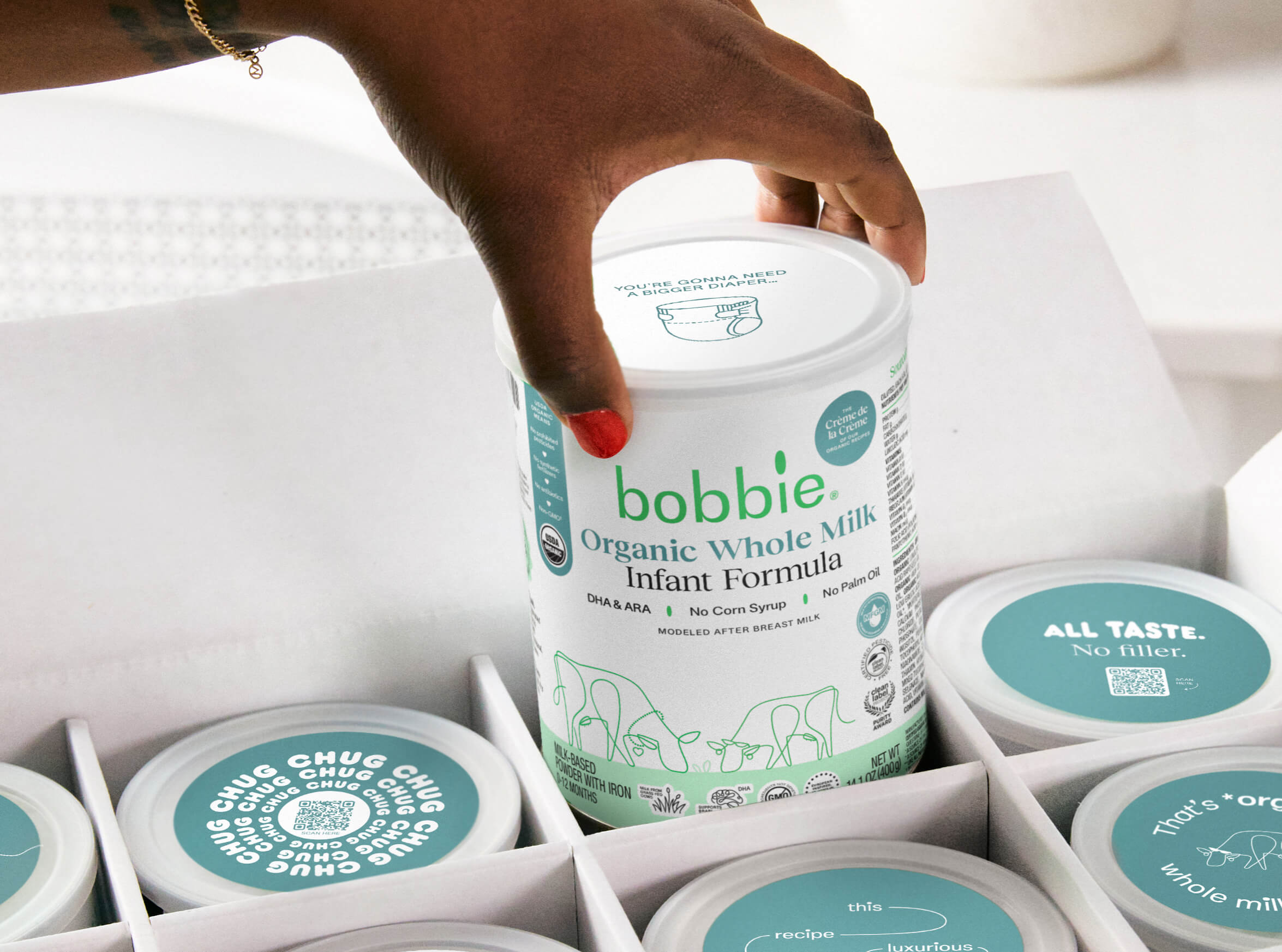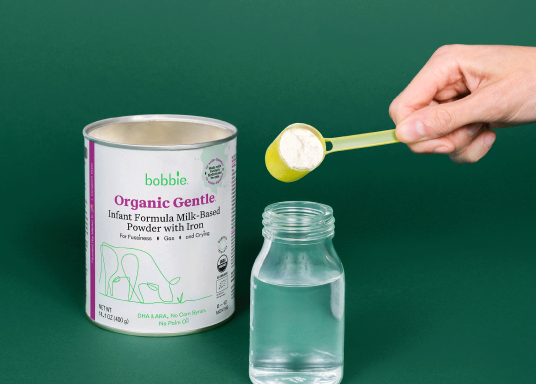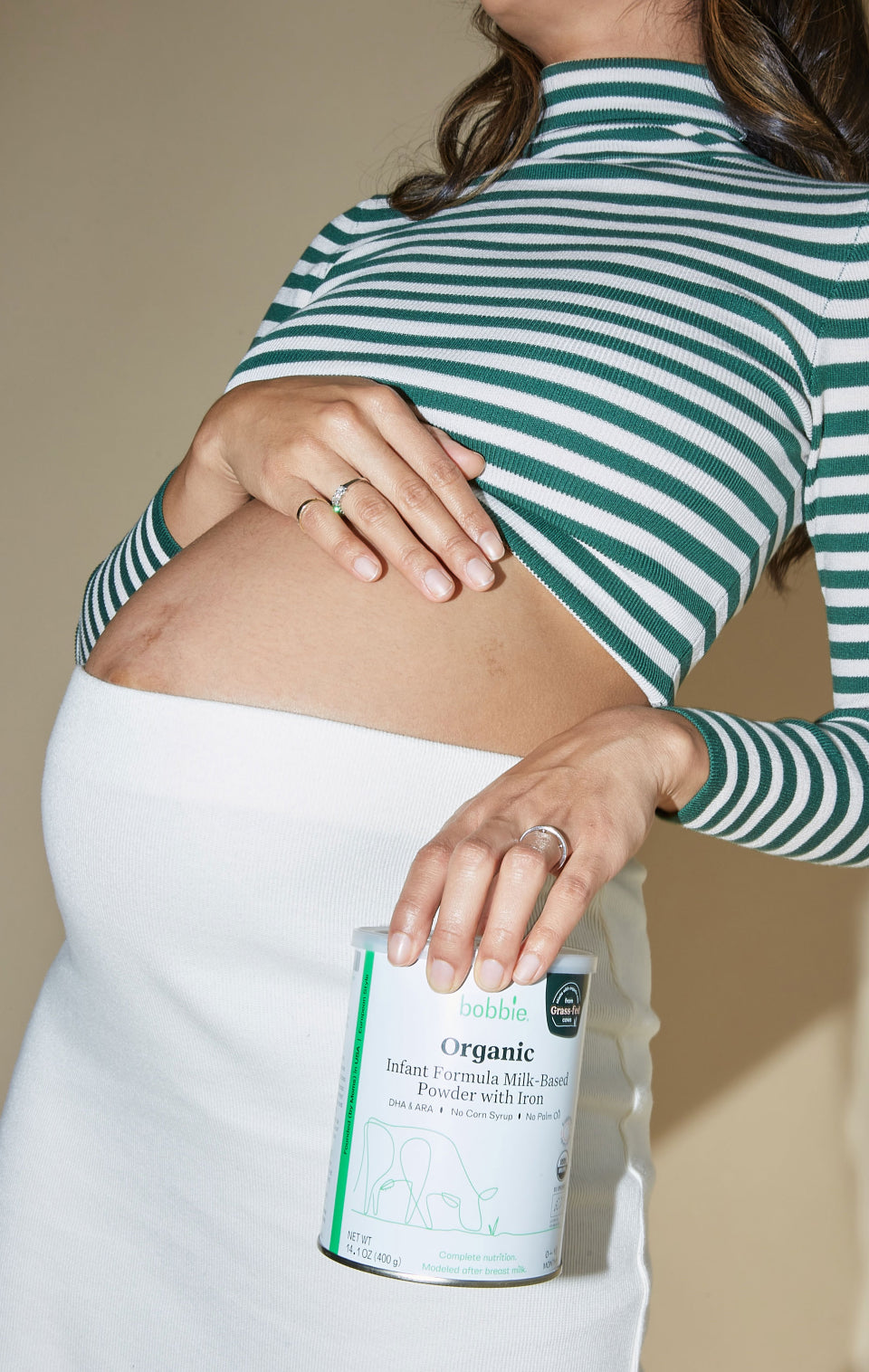Published May 19, 2025

Prenatal Vitamins While Pregnant: What You Need to Know
When you’re expecting — or hoping to be — it’s natural to want to give your baby the very best start. But what if that could begin with something as simple as a daily vitamin?
Prenatal vitamins during pregnancy are essential for filling nutrient gaps, protecting against birth complications and helping your body (and your growing baby) thrive through every stage. Whether you're deep into the second trimester or still thinking about trying to conceive, understanding prenatal supplementation can make a meaningful difference for a healthy pregnancy.
In this guide, we’ll walk you through why prenatal vitamins matter, when to start them, what key nutrients to look for and how to choose one that fits your journey — so you can feel confident, cared for and supported from the inside out.
Download the Top 8 Prenatal Vitamin Benefits for a Healthier Pregnancy
Why Prenatal Vitamins Matter During Pregnancy
No matter how colorful your plate or how healthy your cravings, meeting all your body's needs during pregnancy is a tall order. That's why prenatal vitamins are so important: they offer peace of mind by ensuring you get critical nutrients every day, even when life gets hectic.
Nutrients like folic acid, iron and vitamin D are foundational. Folic acid, for example, supports early brain and spinal cord development, dramatically reducing the risk of neural tube defects. Iron keeps your blood oxygen flowing (and your energy up), and DHA helps build a strong, healthy brain and eyes for your baby.
The Mayo Clinic and the American College of Obstetricians and Gynecologists (ACOG) emphasize that prenatal vitamins are recommended, even for those eating a well-balanced diet. Because growing a human is a full-time, nutrient-consuming job, and prenatal vitamins aren’t just about “getting by” during pregnancy — they’re about thriving.
When To Start Taking Prenatal Vitamins
If you're asking, "When should I start prenatal vitamins?" The answer is simple: the sooner, the better.
Ideally, you’ll start taking a prenatal multivitamin before conception, about 1 to 3 months ahead. This early start gives your body time to build reserves of critical nutrients like folic acid, which helps protect your baby during the very first weeks of development (often before you even know you’re pregnant).
But if you didn’t start before — don’t stress. Beginning as early as possible during the first trimester still provides tremendous benefits, especially during those crucial early stages when the brain, spine and heart are forming.
Throughout early pregnancy and beyond, maintaining a daily prenatal supplement routine supports both you and your growing baby’s needs — from stronger bones to a more resilient immune system.
Even postpartum, especially if you’re breastfeeding, continuing a prenatal vitamin can help replenish your body and nourish your little one through your milk.
Need a deeper dive on timing? Check out our guide on when to start taking prenatal vitamins.
Essential Nutrients To Look For in Prenatal Vitamins
Not all prenatal vitamins are created equal. Some skimp on key ingredients, while others pack in exactly what your body — and your baby's — needs.
When choosing, make sure your prenatal supplement covers these essential nutrients:
-
Folic acid: Vital for preventing birth defects. Look for 400–800 mcg per day.
-
Iron: Prevents iron deficiency anemia and supports oxygen delivery.
-
DHA: A key omega-3 fatty acid for healthy brain and eye development. (Explore why DHA matters here.)
-
Vitamin D: Strengthens bones and supports the immune system. Important for preventing vitamin D deficiency during pregnancy.
-
Calcium: Builds strong teeth and bones for both you and your baby.
-
Vitamin A: Essential for vision and cell growth — but stick to pregnancy-safe levels to avoid toxicity.
-
Vitamin C: Boosts iron absorption and keeps your immune system humming.
-
Vitamin B6 and Vitamin B12: Reduce pregnancy nausea and help your baby’s brain grow.
-
Vitamin K: Supports blood clotting and bone strength.
At the same time, certain vitamins — like large doses of vitamin A from animal sources — should be avoided. Balance is key.
For a full breakdown of important essential nutrients you’ll want to see on the label, Bobbie’s ingredient guide is a great place to start.


Your go-to resource for all things new baby.
Sign up to get the scoop on feeding, sleep, poop, and so much more.
By singing up for email, you are to receive marketing emails from Bobbie and can manage your email preferences or unsubscribe at anytime
Common Concerns About Prenatal Vitamins
Starting a new supplement routine during pregnancy can naturally stir up questions and even a little anxiety. If you’ve found yourself wondering about the "what ifs" of prenatal vitamins, you’re not alone — and it’s okay to have questions.
Missing a dose: No need to panic
One common worry is what might happen if you forget to take your prenatal vitamins or miss a few days. The truth is, while consistency is important to maintain steady nutrient levels, missing a day here and there isn’t cause for panic. Simply pick back up where you left off — your body is resilient, and small slips won’t undo all the good you're doing.
Can you take too many prenatals?
Another concern many parents-to-be have is whether taking too many prenatal vitamins could cause harm. In general, more isn’t better. Excessive intake of certain nutrients, like vitamin A, iron or vitamin D, can cause side effects or even health risks if levels become too high. That’s why it's important to follow dosage instructions carefully and talk to your healthcare provider if you’re unsure about your needs.
Taking prenatals when you're not pregnant
It’s also common to wonder if prenatal vitamins are necessary if you're not pregnant yet. Many people trying to conceive, or even recovering postpartum, continue using prenatal supplements to support their nutrient stores during these critical phases. However, if you're not actively in those life stages, a regular multivitamin may be more appropriate — something your provider can help you decide.
Nausea and constipation from prenatal vitamins
You might also notice some physical side effects once you start your prenatal vitamins — typically mild and manageable. Nausea and constipation are the most frequently reported issues, often due to the higher iron content that supports pregnancy needs. Choosing a gentle, easily digestible formula, switching to a gummy or splitting your dose across the day can often make a big difference in comfort.
Do prenatal vitamins cause weight gain?
Another myth that tends to creep in is the fear that prenatal vitamins cause weight gain. It’s reassuring to know that prenatal vitamins themselves don’t contain calories and don’t cause weight gain directly. Pregnancy weight gain comes from the natural and necessary growth of your baby, placenta, increased blood volume and other beautiful bodily changes, not from your supplement.
Ultimately, prenatal vitamins are a tool — not a guarantee of perfection. They're here to support you, not to add pressure. By focusing on daily care and trusting your body’s wisdom, you're giving your baby a strong, loving start.
Choosing The Best Prenatal Vitamins
Finding the right prenatal vitamin isn’t about choosing the fanciest bottle — it’s about finding one that fits your needs, your lifestyle and your body.
Focus on formulas that contain the full range of essential vitamins and key nutrients you need. Make sure it’s third-party tested for purity and potency. Look for options that offer bioavailable forms of nutrients — meaning your body can absorb them easily. For example, methylated folate instead of synthetic folic acid if you have a gene mutation like MTHFR.
Ease of digestion matters too. If swallowing pills makes you gag (thanks, pregnancy symptoms), know that prenatal supplements now come in capsules, softgels, gummies and even powders. You deserve one that works for you.
Finally, don’t get caught up in the idea that only prescription prenatal vitamins are effective. High-quality over-the-counter options can work beautifully — just be sure to choose reputable brands with transparent ingredient sourcing.
At the end of the day, the best prenatal vitamin is the one you can consistently take with confidence.
Need help reading the fine print? Resources like ConsumerLab can make label sleuthing a lot easier.
When To Consult Your Healthcare Provider
If you’re feeling overwhelmed by all the options, that’s totally understandable. But remember that your healthcare provider is your partner in this journey.
It’s smart to check in with them if you:
-
Have special dietary needs (like being vegan, gluten-free or having food allergies).
-
Are managing conditions like gestational diabetes, thyroid imbalances or anemia.
-
Experience side effects that make it hard to take your prenatal vitamins consistently.
-
Are already taking other supplements or medications that might interact.
Your doctor or midwife can also help you adjust dosages safely for healthy development if your bloodwork shows specific deficiencies (like vitamin D deficiency) or other concerns arise during your pregnancy.

Shop Bobbie Baby Formula
Bobbie infant formulas are clean, EU-style infant formulas that meets all FDA requirements. They are complete nutrition, milk-based powder, modeled after breast milk and is easy on tummies. They are all non-GMO and do not have corn syrup, palm oil, or maltodextrin. Shop Bobbie today!

Ready To Prioritize Your Prenatal Health?
Growing a baby is incredible — but it’s a big job for your body. Choosing a high-quality prenatal multivitamin is a simple way to support both you and your little one through every leap and milestone.
At Bobbie, we believe that feeling empowered and supported makes all the difference — and that starts with great nutrition. Whether you're planning for a family, expecting right now or recovering after birth, nourishing yourself is one of the kindest gifts you can give.
Shop Bobbie to explore clean, carefully crafted nutrition options that support your journey — wherever it takes you.
The content on this site is for informational purposes only and not intended to be a substitute for professional medical advice, diagnosis or treatment. Discuss any health or feeding concerns with your infant’s pediatrician. Never disregard professional medical advice or delay it based on the content on this page.









